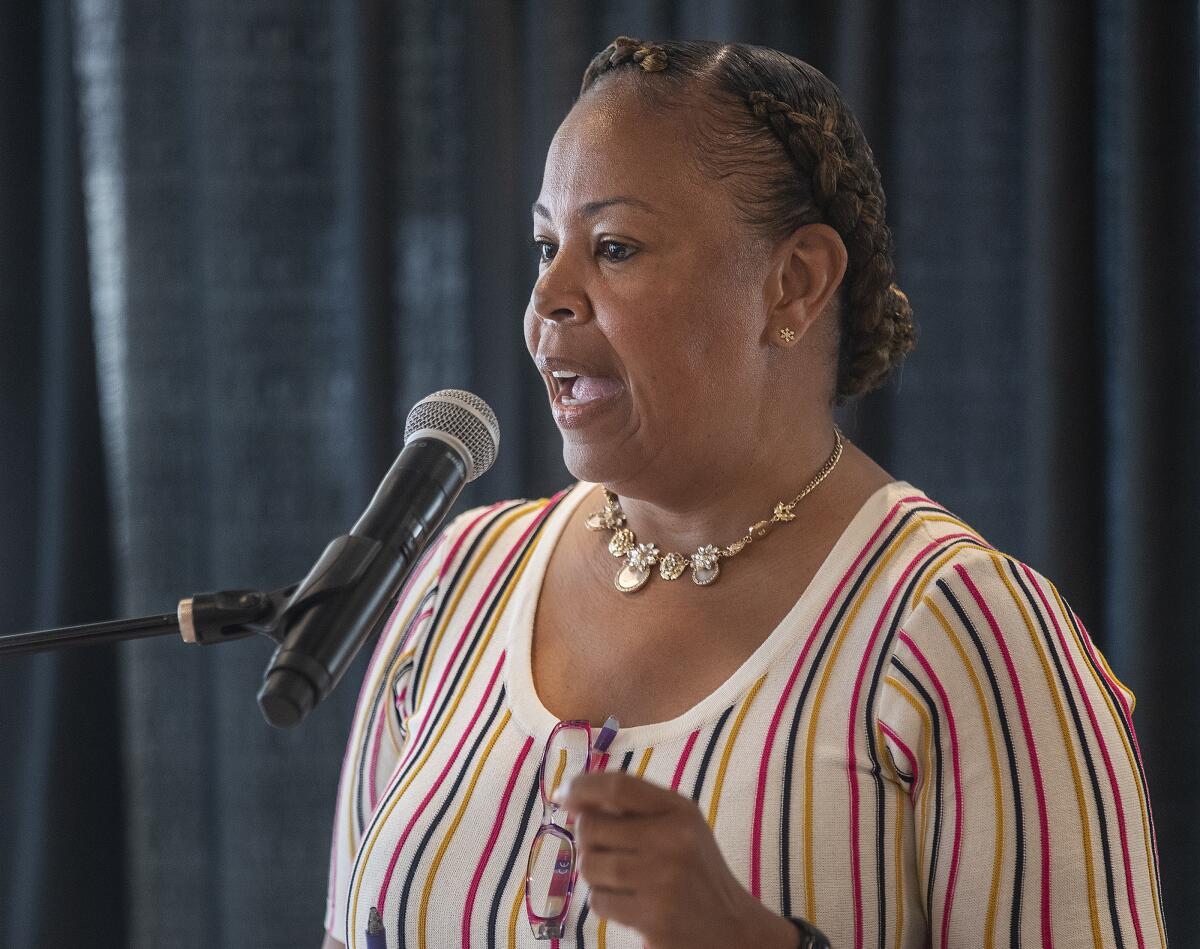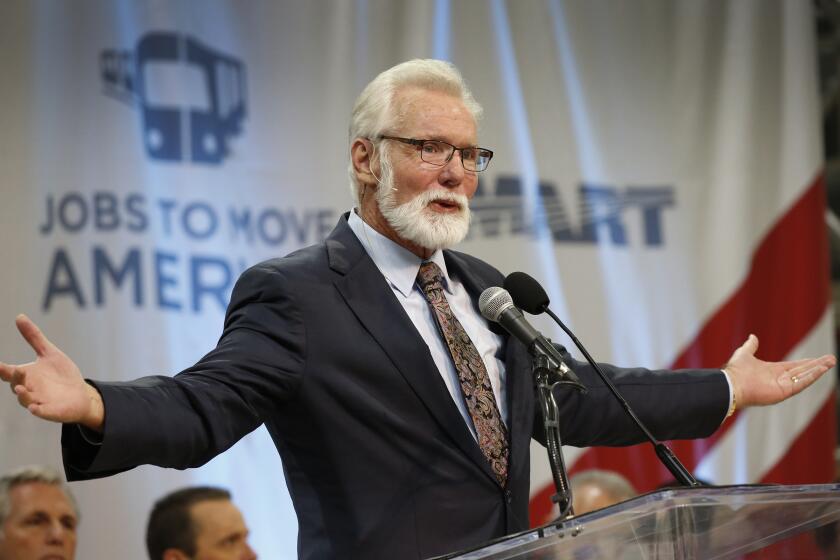An elected or appointed chief executive for L.A. County? Voters will decide

- Share via
Among the many facets of November’s ballot measure to overhaul the structure of Los Angeles County government, the one involving the chief executive is hardly the flashiest.
It has, however, become one of the most contentious, dividing the county’s unions and politicians even more than the proposed expansion of the Board of Supervisors from five to nine members.
Supporters say that making the chief executive elected rather than appointed would bring more accountability to one of the county’s most powerful posts, since voters would choose, and potentially boot, the CEO. Opponents warn it would only make America’s biggest county more of an outlier.
“The newly created elected chief executive officer is an experiment at best,” said Richard Pippin, head of the Assn. for Los Angeles Deputy Sheriffs, one of several county employee unions arguing that an elected chief executive would politicize the position and fuel “insider political games.”
But that’s already the case with the appointed CEO, said Fernando Guerra, director for the Center for the Study of Los Angeles at Loyola Marymount University, who supports the measure.
“It’s one of the most political positions in the state of California,” said Guerra, noting that the current chief executive can be fired by a majority vote of the county supervisors. “Whoever would say this is not a political position doesn’t understand politics.”
The five supervisors appointed Fesia Davenport, a longtime county employee, as chief executive in 2021. She oversees the county’s day-to-day operations and drafts its $45-billion budget.
Put simply, the supervisors provide the vision for the county, and Davenport is responsible for carrying it out. She can be fired by the supervisors but cannot be voted out by the electorate.
The November ballot measure will ask voters if they want to dramatically reshape how L.A. County is governed. In addition to expanding the board and making the chief executive an elected post, the ballot measure, spearheaded by Supervisors Lindsey Horvath and Janice Hahn, would create a new ethics commission.
“It is clear in the conversations that I have had … that the most concerning element of the proposed ordinance is the elected countywide chief executive,” Supervisor Kathryn Barger said at a board meeting last month before she and Supervisor Holly Mitchell were outvoted by their colleagues, 3 to 2, placing the measure on the ballot.
Under the ballot measure, the elected executive would have the power to veto the board’s policies and would have full authority over department heads. Currently, the supervisors have final say over the departments.
This would create a system of checks and balances that most voters should be familiar with, said Raphael Sonenshein, executive director of the Haynes Foundation, which funds research on governance in greater Los Angeles.
The supervisors would be the legislative branch. And the CEO — like the president of the United States — would head the executive branch. Right now, Sonenshein said, the supervisors are doing it all.
“There’s a general consensus around executive authority being its own branch,” he said. “You would never think of Congress running departments.”
Horvath’s motion to draft the ballot measure mentioned several counties with elected executives, including Cook County, Ill. (population 5.2 million); Montgomery County, Md. (1 million); and Cuyahoga County, Ohio (1.2 million).
But for most larger counties, an appointed executive is the norm, said Jason Grant, director of advocacy for the International City/County Management Assn.
The association, which often works with local governments considering a structure change, wrote to the Board of Supervisors in July, arguing that an elected executive was a bad idea. The letter pointed to a study that found there is less corruption in a “council-manager” form of government with an appointed executive, similar to what the county has now.
An elected executive, Grant said, could be swayed by donors and political allies.
The L.A. County public employee unions opposing an elected chief executive say the system would fuel dysfunction.
AFSCME Local 685, which represents probation officers, wants to see “a career professional, not a politician” running the county. Dave Gillotte, president of Los Angeles County Firefighters Local 1014, had urged the board to “carve out” the language about an elected chief executive.
But the biggest county union, representing 55,000 employees, is willing to give it a chance.
David Green, president of Service Employees International Union Local 721, said his union is leaning toward supporting the elected CEO, in part because of frustrations during recent contract negotiations.
Green said he can easily get ahold of the five county supervisors. But the person who holds much of the power in the negotiations — the CEO — stays behind the scenes.
“We could do better, candidly,” said Green. “Does an elected CEO fix that? I don’t know. I don’t have a crystal ball.”
Times staff writer David Zahniser contributed to this report.
More to Read
Sign up for Essential California
The most important California stories and recommendations in your inbox every morning.
You may occasionally receive promotional content from the Los Angeles Times.











